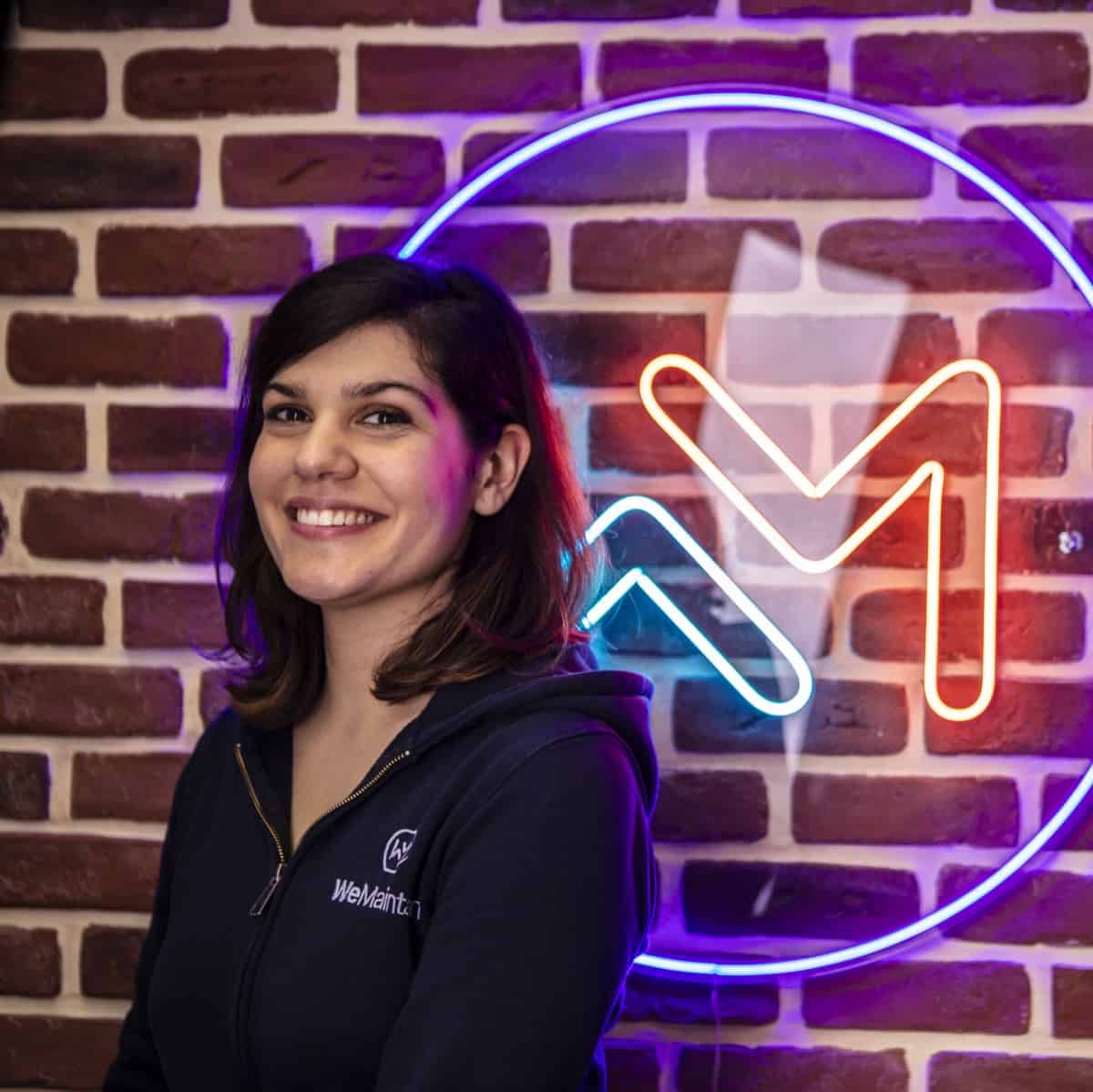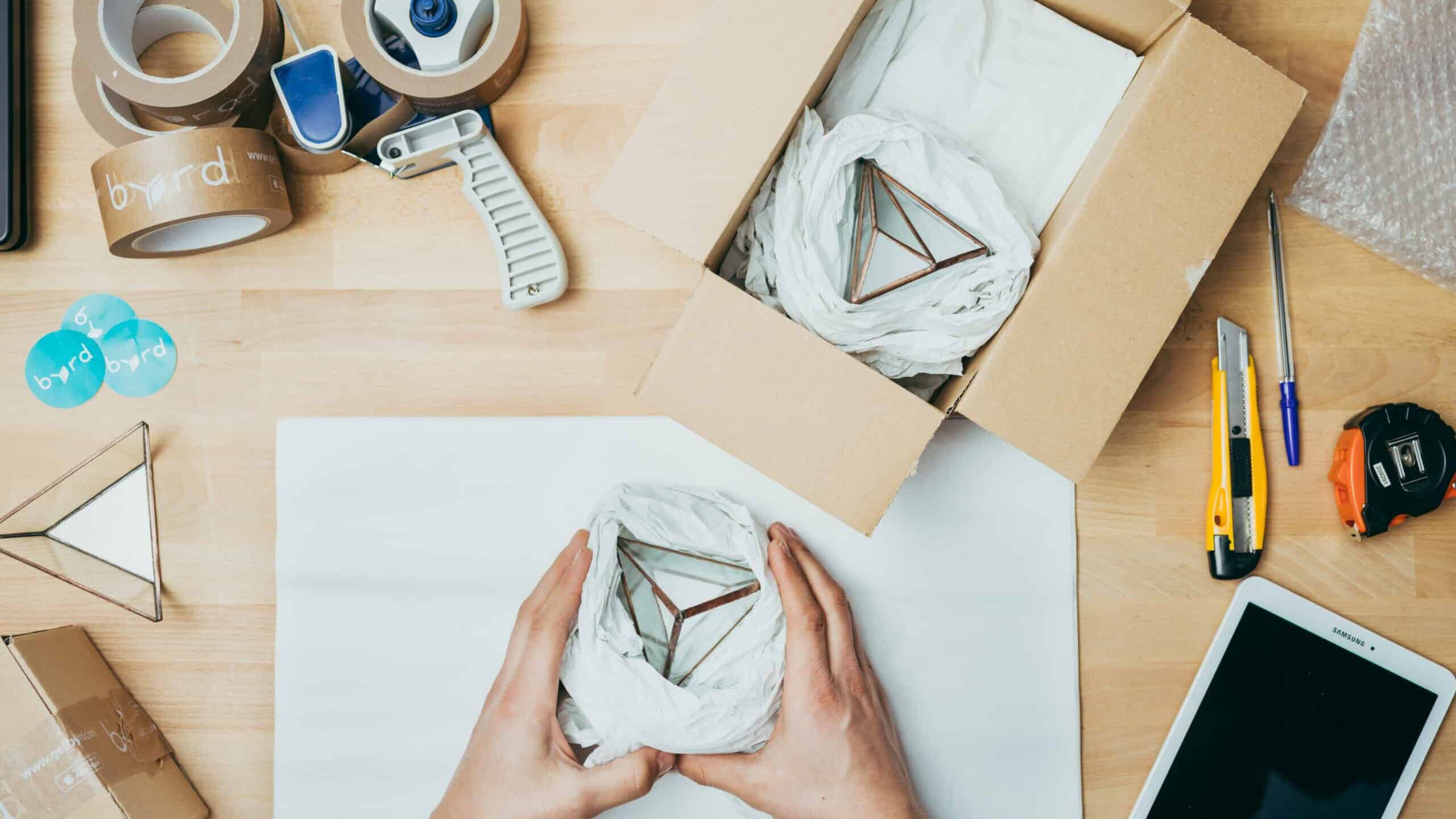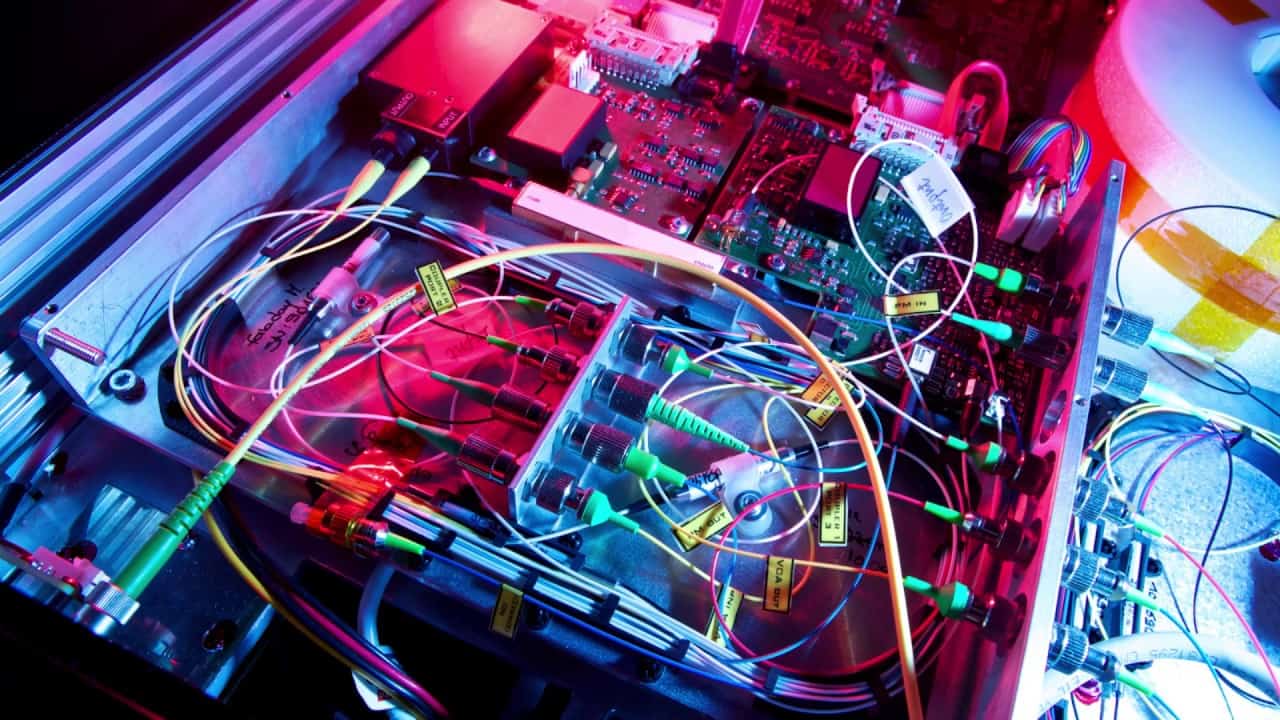All successful startups experience growing pains. How do you ensure that everyone moves in the same direction when you’re no longer a small team? Jade Francine, the co-founder of WeMaintain, recounts how the proptech startup grew from 3 to 164 people in 5 years.

Co-Founder, WeMaintain
Jade Francine co-founded WeMaintain in 2017 together with Benoît Dupont and Tristan Foureur. WeMaintain offers tech-enabled maintenance operations in the building space and is based in Paris, with offices in London and Singapore. Prior to becoming an entrepreneur, Jade was working as a legal advisor for a Shanghai-based law firm. She holds a master’s degree in public administration and business in Asia from Science Po Lille and an LLM in Chinese law from Beijing University.
WeMaintain services more than 1000 buildings in Paris, London and Singapore. The startup equips lifts with sensors and uses digital tools to provide reliable data for optimizing building management. Since its acquisition of startup Shokly in 2021, WeMaintain also integrated fire security maintenance into its offering. WeMaintain provides large owners of commercial real estate such as Allianz Real Estate, WeWork and JLL’s Workspace OnDemand access to complete transparency of the maintenance and repair process and detailed usage analysis for preventive maintenance.
Let’s talk about the very beginning of WeMaintain. How did you three co-founders meet?
Benoît and I met in China while he was working for the elevator company Otis and I was helping companies, including startups, expand their business into China. We decided to start a venture together, and Benoît knew from his experience that elevator maintenance is ripe for disruption. We also knew that we wanted to add a technical founder, a CTO to the team.
How does one find a CTO when one only has an idea?
It was not easy, we struggled for a while. The first thing we did was to let people know what kind of person we were looking for. We asked the FrenchTech network for help. In 2017, we were in Bangalore, because we had started working with an Indian service provider, which turned out not to be a very good idea. However, through a common friend we met Tristan for drinks and immediately got along very well. Sometime later, the three of us met again in France, and we asked him if he wanted to join us, to which he agreed, despite having to give up a good job in San Francisco.
Looking back, what would you say are the different phases WeMaintain went through as the company got bigger and bigger?
I’d say the first phase was after we rapidly hired key personnel such as frontend and backend developers and technical and commercial directors. We were a handful of people. Everyone worked very closely together, and shared a very strong common motivation. After the Series A financing round in 2019, we started to grow to about 20 people. At this small stage, you still don’t need to make many internal communication efforts, but you need to convince people to join you. Also, at this stage, everything is always super urgent, and there isn’t a lot of structure yet. Different teams only started to form in earnest as we reached about 30 people. At that time we were still only active in France, and everyone worked here in Paris, and we grew to about 60 people before Covid arrived.
This more or less coincided with WeMaintain establishing its first presence outside of France, in the UK.
Our sales approach always centered on big owners of real estate, and we follow a land-and-expand strategy. We start working with a client taking care of a few buildings, and as they become convinced of the value we provide, expand the contract to more buildings. Opening a UK presence made a lot of sense in this regard, as we’re dealing with multinational corporations. Covid started a phase of reflection for real estate owners, they need to operate their assets much more efficiently, and the pressure to make building operations more sustainable is palpable. For WeMaintain, this is a significant tailwind. But having opened an office in London just before the lockdown and working with a team you couldn’t meet physically was very tough for them. We were only able to fly in the new team and meet them after our Series B in 2021.
In 2021, WeMaintain also opened an office in Singapore, and added fire security maintenance capabilities to its offering by acquiring the startup Shokly. How did you ensure that Shokly’s team members, around 20 people, were well integrated?
The mindset of the old team that revolved about elevators needed to change as we integrated the new team. We had to repeat the message that we’re no longer a lift startup, but a building operations startup over and over again. The integration of the product on a technological level was comparatively easy. Integrating a new team and making everyone want to work together with a new, larger mission necessitates relentless internal communication efforts. We had the new team talk about fun facts in our weekly meeting, for example. Our elevator maintenance team consists of professionals with more than 15 years of experience on average, it was a challenge to convince them that we’re now also doing fire safety. You need to create strong moments to hold the team together. So we decided to throw a big fire-themed party after we received our certification. Everyone came disguised. It was hilarious, and I think such small gestures help a lot.
“We fight to change that and bring the best of human skills and technology together.”
Having fun from time to time doesn’t seem to distract you from a bigger mission. In September 2022, WeMaintain became a certified B Corporation. Only about 5600 firms globally have received this certification which attests to a high social and environmental performance. Why did WeMaintain choose to become a B Corp?
From the beginning, we have thought of our mission not just as developing technology to help property owners but as revalorizing the technicians’ work and their craftsmanship. Maintenance workers have a difficult standing in society. Nobody cares about their lot. We fight to change that and bring the best of human skills and technology together. The pandemic reminded everyone that we all depend quite heavily on people with skills that don’t get much attention. Becoming a B Corp and enshrining this societal mission in our statutes was quite a logical step for us to take. The process and the evaluation we underwent to gain this certification make our mission more transparent for all stakeholders – the technicians, us as a company, our clients and also our investors. We continue to push forward in terms of corporate social responsibility, also in terms of diversity among our employees. If you don’t let actions follow the words of your mission and values, you might as well erase them.

Invest in Startups
As one of Europe’s most active venture capital investors, we grant qualified private investors access to top-tier European startups. With investments starting at EUR/CHF 10’000, you can build your own tailored portfolio over time and diversify across stages and sectors.
With more than 160 employees now, how do ensure that the company can keep its culture intact and that such values are shared by newcomers?
We’re very proud that a significant number of new employees were referred to us by existing employees. This year, we hired 60 people, and about a quarter of them were referrals. This already assures a good cultural fit, otherwise, these people wouldn’t get referred in the first place. But in general, to ensure that your company culture stays intact and alive, you have to talk about it, discuss it and make sure everyone is aligned. This doesn’t mean that everyone agrees all the time, sometimes we agree to disagree. But we want to work with people that share a common conviction, and an open mindset. This is quintessential. We have the rule that we don’t hire for a position until we find the right candidate with the right cultural fit. Earlier this year we hired a VP People, and she made my life a lot easier, but it took us almost a year to find the right candidate.
How will WeMaintain keep up its growth going forward? Will you open offices around the world?
First of all, we want to reinforce our position in the geographies we’re already active in. After London, we’ll open up a second office in Manchester, and after Paris, we’ll open up a second office in Lyon. We’re also hiring a manager whose responsibility will be to drive expansion in the regions outside of the big cities and find small- and medium-sized building maintenance companies we want to partner with.
What about the technological side?
On the technological side, we’ll launch a new offering that really ties all the data we gather and the people on the ground together, and will allow the owners of buildings to realize further savings. Some day we could add heating, ventilation, and air conditioning to our capabilities. The key insight for owners is that just having a better overview and reporting on what is happening in their buildings isn’t enough. You need someone to take ownership and fix what is broken and act on the information that is available. In a typical building, you have around 30 different service providers that intervene, and each one is only looking at their particular domain. What we will strive for is that our technicians, empowered by technology, become the agents of transformation that are responsible for actions based on data. If we know that nobody goes to the third floor on Thursday afternoons based on elevator data, we might as well regulate the heating and ventilation accordingly. This ties in very well with our mission of empowering our technicians and making them key personnel with a clear economic impact.
Written by
WITH US, YOU CANCO-INVEST IN DEEP TECH STARTUPS

Verve's investor network
With annual investments of EUR 60-70 mio, we belong to the top 10% most active startup investors in Europe. We therefore get you into competitive financing rounds alongside other world-class venture capital funds.
We empower you to build your individual portfolio.
More News
24.05.2022
“byrd will create the largest e-commerce fulfillment network in Europe”
Berlin-based software startup byrd just raised a cool EUR 50m financing round. In this interview, co-founder Petra Dobrocka talks about the expansion and hiring plans of byrd.
05.11.2021
“You won’t have a quantum laptop at home soon”
Grégoire Ribordy is a pioneer among entrepreneurs in the quantum industry, his startup ID Quantique just turned 20. In this industry, he talks about the quantum internet, the difficulty of balancing near-term and long-term goals, and the startup Miraex.
11.02.2021
“With startups, you invest in a memorable experience”
Entrepreneur, investor, and mother of three, Vvivi Hu has been part of Verve Ventures’ community for a long time. In this interview, she talks about how a venture capitalist mindset helped her become a better investor.
Startups,Innovation andVenture Capital
Sign up to receive our weekly newsletter and learn about investing in technologies that are changing the world.




